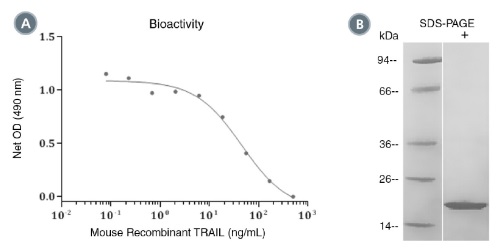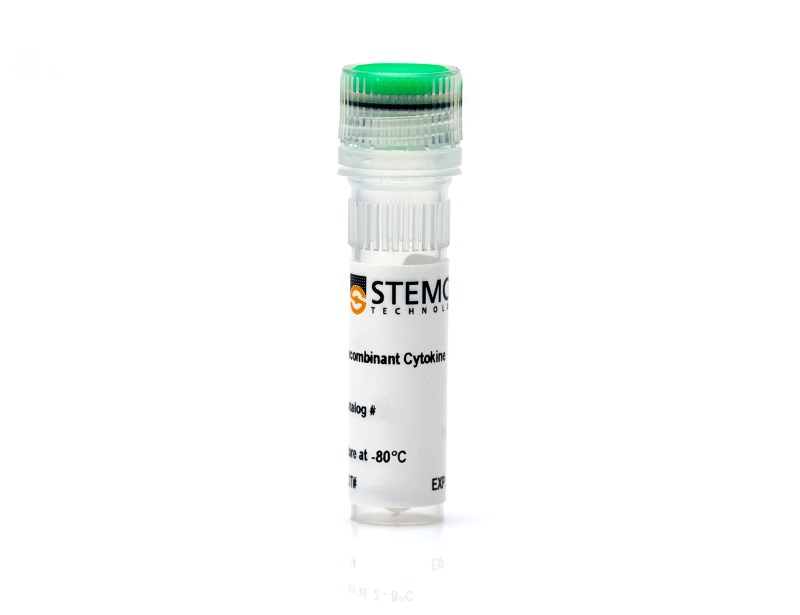Mouse Recombinant TRAIL
TNF-related apoptosis-inducing ligand
概要
TRAIL (TNF-related apoptosis-inducing ligand) belongs to the tumor necrosis factor (TNF) superfamily and is associated with initiating apoptosis. TRAIL has four major receptors: two death receptors DR4 and DR5, and two decoy receptors DcR1 and DcR2. TRAIL binds to the death receptors, which recruits the Fas-associated death domain (FADD) and activates caspases 8 and 10, which eventually leads to apoptosis (Pitti et al.; Wiley et al.; Zauli & Secchiero). It has been shown that mice lacking the expression of TRAIL have defects in thymocyte apoptosis and negative selection, and these mice had increased susceptibility to autoimmune diseases (Lamhamedi-Cherradi et al.).
Subtype
Cytokines
Alternative Names
TL2, TNF-related apoptosis-inducing ligand, TNFSF10
Cell Type
T Cells
Species
Mouse
Area of Interest
Immunology
Molecular Weight
20 kDa
Purity
≥ 98%
技术资料
| Document Type | 产品名称 | Catalog # | Lot # | 语言 |
|---|---|---|---|---|
| Product Information Sheet | Mouse Recombinant TRAIL | 78122, 78122.1 | All | English |
| Safety Data Sheet | Mouse Recombinant TRAIL | 78122, 78122.1 | All | English |
数据及文献
Data

(A) The biological activity of Mouse Recombinant TRAIL was tested by its ability to inhibit the proliferation of RPMI-8226 cells. Cell proliferation was measured using a fluorometric assay method. The EC50 is defined as the effective concentration of the growth factor at which cell proliferation is at 50% of maximum. The EC50 in the above example is less than 100 ng/mL. (B) 2 μg of Mouse Recombinant TRAIL was resolved with SDS-PAGE under reducing (+) conditions and visualized by Coomassie Blue staining.



